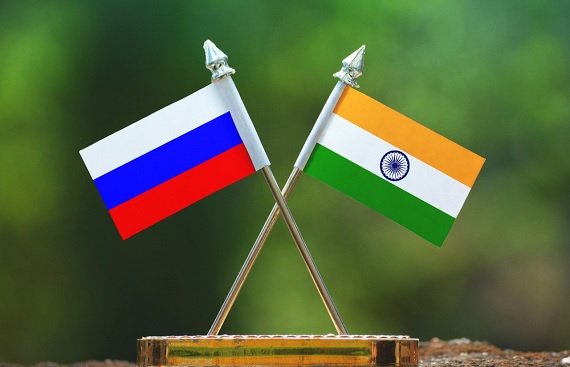India-Russia Eye $30 Billion Trade Goal by 2030 and Strengthening Ties
By
siliconindia | Wednesday, 10 July 2024, 08:59:42 AM IST

India and Russia have set an ambitious goal of achieving USD 100 billion in annual trade volume by 2030, committing to establish a robust bilateral payment settlement mechanism using their national currencies. During summit talks between Prime Minister Narendra Modi and Russian President Vladimir Putin, the two nations also signed nine agreements to enhance cooperation across various sectors, particularly in the economic domain.
Modi paid a two-day visit to Russia, his first to the country since the start of the war in Ukraine. "The major thrust of the discussion was economic engagement. A significant component of it was also devoted to how the partnership between India and Russia can also give fillip to 'Make in India' and other manufacturing partnerships", Foreign Secretary Vinay Kwatra said at a media briefing.
Kwatra said PM Modi spoke about the need to broaden the overall trade basket and called for greater market access for Indian goods in Russia, both in the agricultural and industrial sectors. "The two leaders also focused on important areas in the economic domain that link with the growth of different sectors in both countries, in particular fertilizer supplies from Russia to India, which are directly linked to crop production and farmers' yields in India", he said.
The current bilateral trade volume between India and Russia stands at approximately USD 60 billion. The two leaders discussed the importance of progressing with the India-Eurasian Economic Union trade and goods agreement. Additionally, they issued a "leaders' joint statement on the development of strategic areas of Russia-India economic cooperation up to 2030," outlining a roadmap for expanding economic ties.
The document prioritized the creation of a bilateral payment settlement system using national currencies and the steady introduction of digital financial instruments for mutual payments. It highlighted the development of cooperation in crucial energy sectors, such as nuclear energy, oil refining, and petrochemicals, as well as expanded partnerships in energy infrastructure. Additionally, it emphasized the importance of facilitating mutual and international energy security, considering the prospects of the global energy transition.
A joint statement also noted that both sides agreed to continue working together to promote a bilateral settlement system using national currencies. "The sides agreed to continue consultations for interoperability of their financial messaging systems. "They noted the importance of finding mutually acceptable solutions for issues of insurance and reinsurance to facilitate further enhancement in bilateral trade", it said.
The leaders instructed their officials to investigate the possibility of starting negotiations for a bilateral free-trade agreement on services and investments. They also reaffirmed the crucial role of strong and comprehensive cooperation in the energy sector, underscoring it as a key pillar of their Special and Privileged Strategic Partnership. "In this context, the sides noted the continued special importance of bilateral trade in energy resources and agreed to explore new long-term contracts", the joint statement said.
Read More News :
India Emerges as Leading Hub for Assistive Device Manufacturing
A Comprehensive Guide on How to E-File Your Income Tax Return (ITR)?



.jpg)